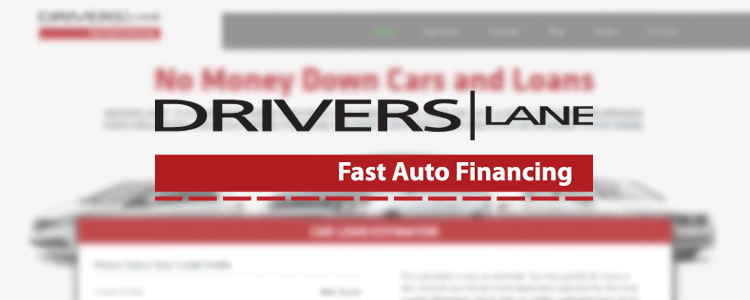Getting your first car can be an exciting time, but it can be quite a different experience than financing your first vehicle. An auto loan isn't something that just anyone can walk into a dealership and get, especially the first time around.
Start by Finding Out Your Credit Situation
 Before you get your first car loan, you need to know where you stand with both your credit and your finances. Taking on an auto loan requires you to be able to prove that you not only meet the initial qualifications, but that you can continue to meet them throughout the loan term, as well.
Before you get your first car loan, you need to know where you stand with both your credit and your finances. Taking on an auto loan requires you to be able to prove that you not only meet the initial qualifications, but that you can continue to meet them throughout the loan term, as well.
Your credit score is a three-digit number between 300 and 850 which lets you know where you fall in the credit scoring tiers used by lenders. The better your credit score, the more car loan options and lower interest rates you may qualify for. However, just because it's your first time buying a vehicle with an auto loan, this doesn't mean you have to start at the bottom of the totem pole.
It's easier now than ever before to look into your credit reports and find out your credit score by visiting www.annualcreditreport.com. Now through April of 2021, you're able to view your credit score and reports once a week from each of the national credit bureaus – Experian, TransUnion, and Equifax – for free. Previously, you could only view these reports for free once every 12 months.
Tips for First-Time Car Buyers
If you're a first-time car buyer and you're looking for a way to ease the stress and hassle of the situation, try these tips:
- It's important to set a budget. Without a budget in mind you're at risk of becoming a payment shopper. This can happen when you're more concerned with how much you pay monthly rather than the overall cost of the auto loan. This is a bad position to be in because you risk paying more for the vehicle than it's actually worth. The best way to balance your monthly payment with the overall cost of the car loan is to pay the most you can comfortably afford each month for the shortest loan term possible.
- Have a large down payment to save cash. Typically, first-time car buyers that are working with subprime lenders are required to make a down payment of at least $1,000 or 10% of the vehicle's selling price. However, the larger the down payment, the less you have to borrow, and the more money you save in interest charges overall. Additionally, a larger down payment means that you have less of a chance of ending up in a negative equity position where you owe more on the loan than the car is worth.
- If you still need a boost, consider applying with a co-applicant. These can be either a cosigner that gives you a boost in the credit score department, or a co-borrower, who is typically a spouse or life partner, that can increase your financial amount by adding their income to yours. Having two people on one auto loan can increase your odds of getting approved, and possibly help you get better loan terms.
Lenders for First-Time Car Buyers
Whether or not you're eligible for a car loan depends on your situation and the lender you're working with. Even with a decent credit score it may be difficult to get into an auto loan without having had one before. You may need to apply with a lender that has a bit more leeway in terms of what they’re willing to offer.
This often means working with a subprime lender. Subprime lenders assist borrowers in unique credit situations, including those with little or no credit history at all. Many first-time car buyers seek subprime financing as a way to start their credit history and get the vehicle they need.
Don't let the term "subprime" throw you off. Even though they do help people who have less than perfect credit, these lenders also specialize in working with people in many unique credit situations. This includes people with little to no credit history, bankrupts, and first-time buyers.
When you're applying with a subprime lender, they look at more than just your credit score and use additional factors to determine whether or not you're eligible for lending. Here are just a few of the basics a subprime lender typically requires:
- Do you have credit?
- What credit tier do you fall into?
- Do you have an income?
- Do you make at least $1,500 to $2,500 a month?
- Are you employed?
- Are you willing to make a down payment?
- Do you have a stable residence history?
Subprime lenders look at your ability, stability, and willingness to take on an auto loan – and they require proof that you qualify. Typically, they need you to bring in recent check stubs showing year-to-date income, proof of residency, proof of a working telephone, and a list of personal references. Each lender is different and the specific requirements you need to meet varies.
However, these basics are a good place to start. Also, as a first-time car buyer, it's important that you understand that you may not qualify for the best interest rate or the shortest loan term the first time around. With a good payment history, though, you can build your credit score and possibly qualify for a better deal when you're no longer financing your first auto loan.
Ready to Get Started?
If you're ready to get the ball rolling on your first car loan, let Drivers Lane be your guide. We want to connect you to a local dealer that works with the lenders that can assist you with a first auto loan. The process is free, fast, and there's never any obligation to buy. Get started now by filling out our car loan request form, and we'll connect you to a dealership near you.



















